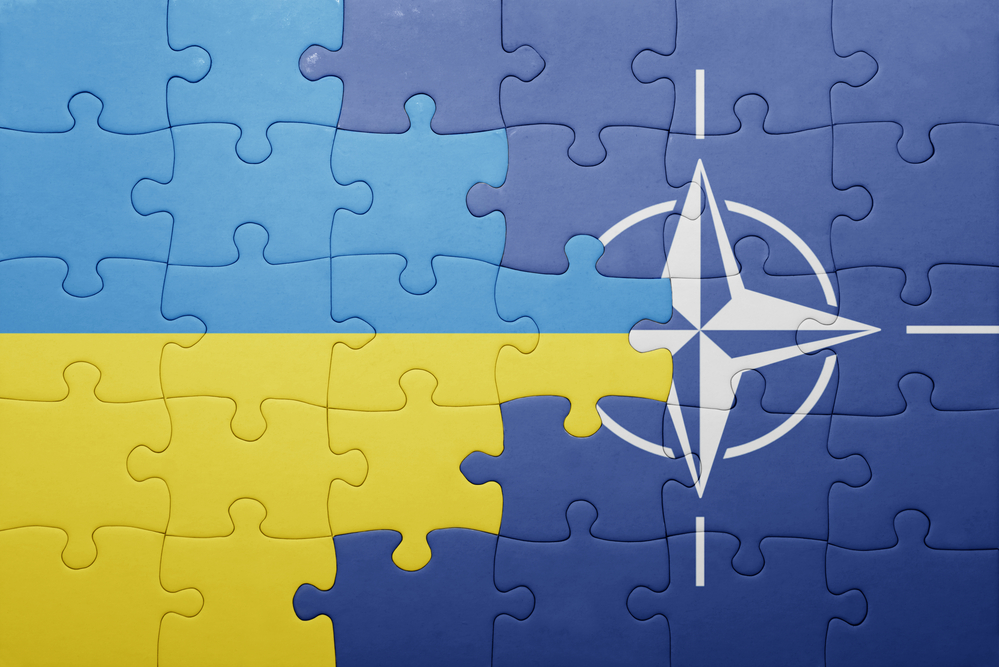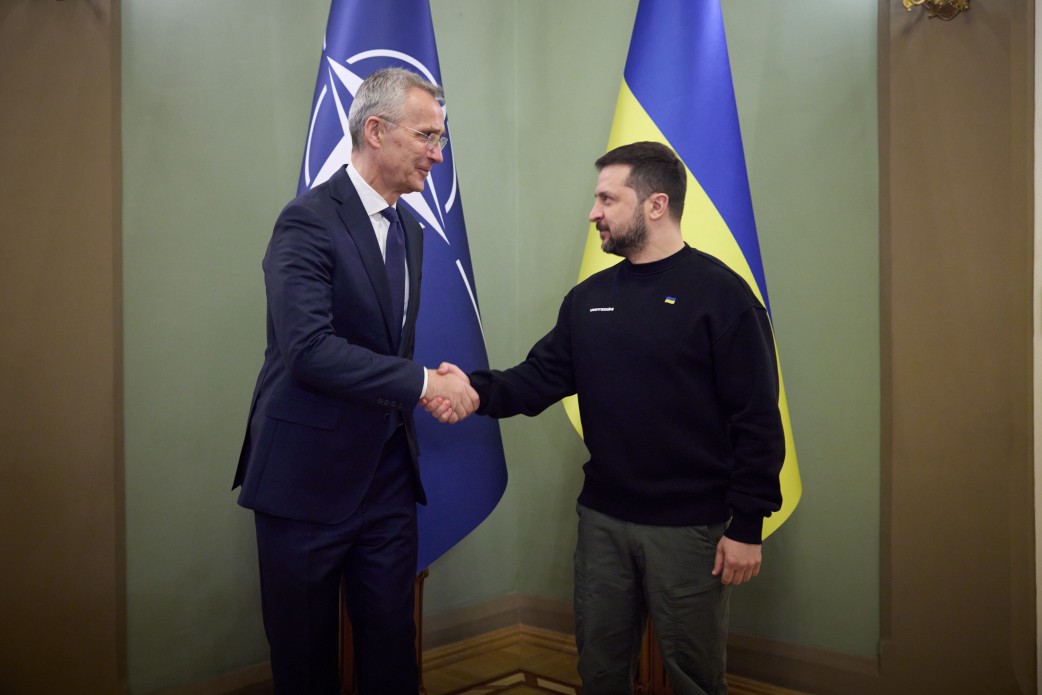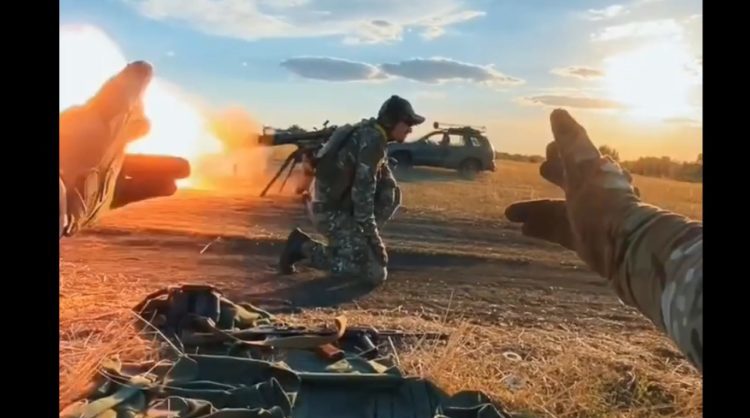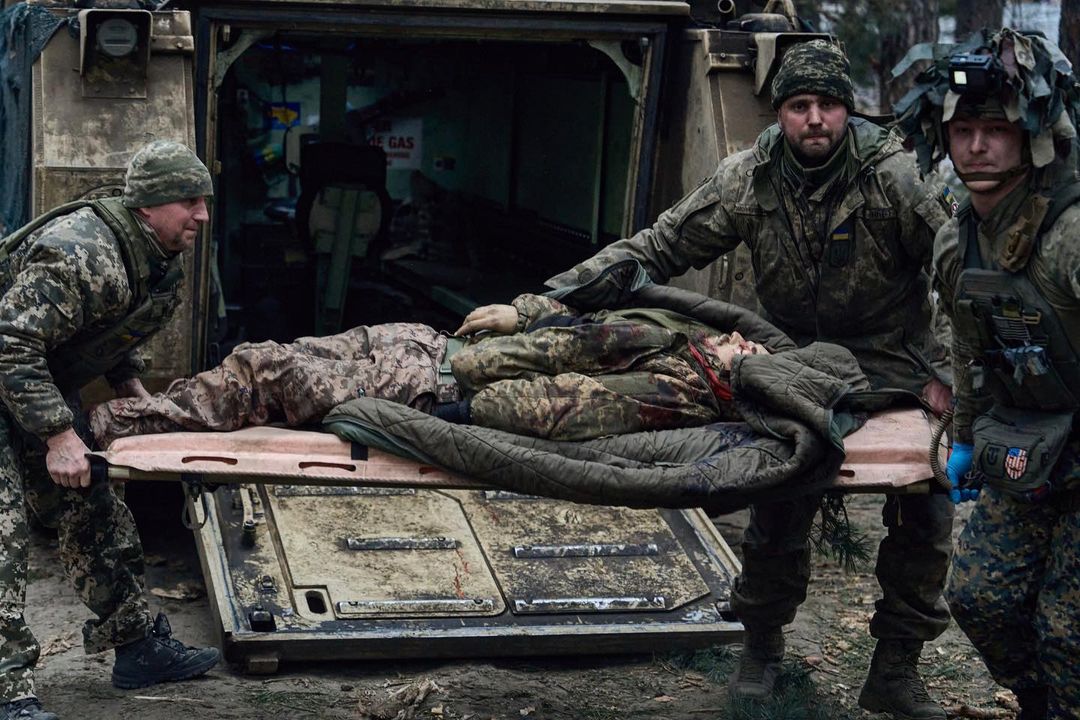NATO has stated that Ukraine will eventually become a member, but not during the ongoing conflict with Russia. There is concern that admitting Ukraine now could lead to direct NATO-Russia war and potential nuclear escalation.
Kurt Volker, a leading expert on American foreign policy who previously served as US special envoy for Ukraine, argues this perspective is flawed. In an article for the Center for European Policy Analysis, Volker states that NATO's current approach inadvertently signals to Putin that continued aggression gives him a chance to block Ukraine's NATO membership.
Instead, Volker argues NATO must send the opposite message - that Putin's efforts to defeat Ukraine are futile. Moving forward with Ukrainian membership in NATO is crucial to this. We summarized Volker’s arguments for you.
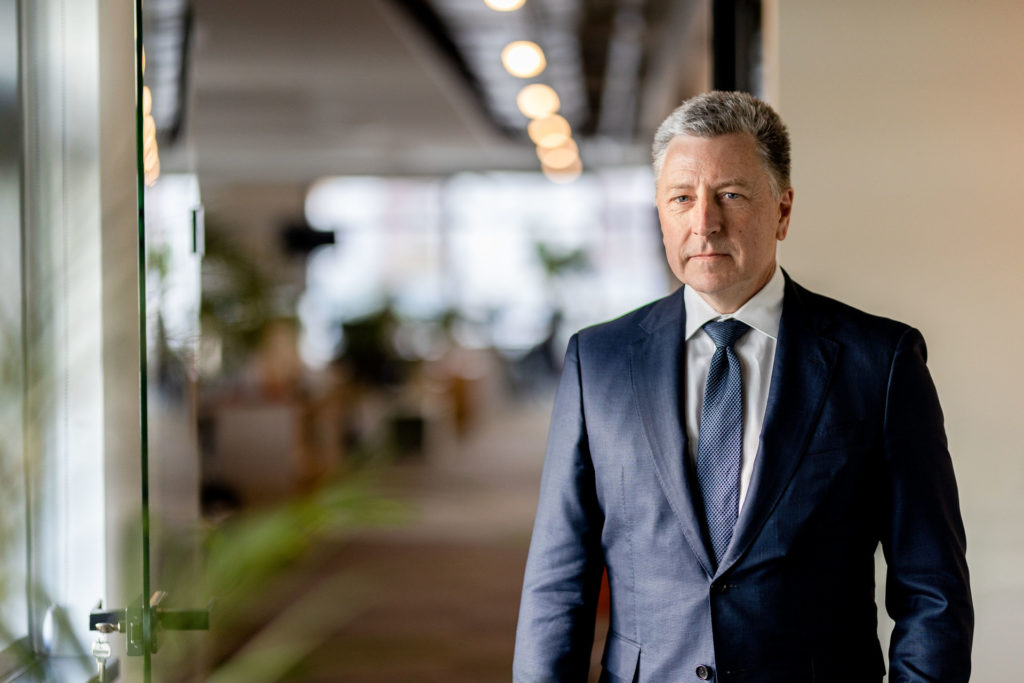
What are the fallacies in the current NATO approach?
The first fallacy is to assume that Article 5 mandates Western ground troops to engage on the front lines against Russian forces.
Article 5 of NATO does entail a collective response to aggression against a member, but it doesn't specify the nature of that response. It was only invoked once, post-9/11, and did not involve deploying troops against terrorists. NATO's involvement in Afghanistan came later, not as an Article 5 commitment.
Article 5 isn't an automatic trigger for ground forces; it depends on the circumstances, like a potential Baltic states attack. In Ukraine, a vast country with a large population, there are multiple options beyond the immediate use of NATO ground forces.
The second fallacy is assuming Putin refrains from escalating the Ukraine war due to NATO not offering membership, which is untrue. Putin lacks the option to escalate conventionally, having already lost half of Russia's forces. He relies on Iran and North Korea for equipment and deploys untrained troops as cannon fodder to sustain the conflict. Nuclear escalation is unlikely, as it offers no military advantage in Ukraine and invites a direct response against Russia.
The third fallacy
is to link Putin's aggression against Ukraine with Kyiv’s potential NATO membership. Ukraine had little chance of joining NATO when Russia invaded in 2014 and 2022. Russia borders several NATO members yet has not attacked them. When Finland joined NATO this year, with Sweden soon to follow, Russia barely responded. Putin's issue is Ukraine's existence as an independent state, not its NATO membership.
So what would Article 5 mean in practice for Ukraine?
The allies are providing massive amounts of equipment to Ukraine, as well as providing training, finance, logistics, intelligence, operational planning, and more. This is already significant.
Some NATO nations, including the US, have decided to help Ukraine acquire advanced F-16s, a major long-term commitment to Ukraine's future. Given the infrastructure and training F-16s require, this signals to Putin that he cannot defeat Ukraine.
The European Union’s decision to open accession talks with Ukraine also sends a significant signal to Putin that there is no scenario ahead in which he wins.
Yet NATO could still do more under Article 5 than it is currently doing. Four things come immediately to mind:
- Maritime Demining: NATO nations should deploy or transfer mine-hunting vessels, particularly unmanned ones, to members with a Black Sea coastline, as well as to Ukraine. This initiative aims to establish a demining system in the Black Sea, covering Ukraine's territorial waters, NATO allies' territorial waters, and the expansive international waters. This is crucial for addressing the threat of floating mines to international shipping.
- Freedom of Navigation: NATO allies must initiate a mission to uphold freedom of navigation in the Black Sea. Any physical threat to third-party vessels in international waters there is as unacceptable as it is in the South China Sea or the Mediterranean.
- No Limits on Particular Systems: Significant restrictions persist on the systems the US and NATO allies can provide, with particular emphasis on the longest-range (300km) artillery systems, naval vessels, long-range missiles, and aircraft like the A-10 ground attack plane. None of these systems should be excluded.
- Participation in Air Defense for Humanitarian Purposes: NATO nations could directly engage in Ukraine's air defense to safeguard civilians and infrastructure. This could entail deploying air defense systems on NATO territory and utilizing alliance capabilities near western Ukraine to shield civilians and potentially affected NATO regions from Russian bombardment. The aim, at the very least, should be to secure Ukraine west of the Dnipro River, including Kyiv, Odesa, and Lviv, from Russian attacks.
These steps, discussed and agreed upon within the NATO-Ukraine Council, could serve as NATO's Article 5 commitment to Ukraine. The commitment should remain flexible, not ruling out ground troop provision if necessary in the future. This approach signals to Putin that escalation is on NATO’s side, even if not pursued immediately.
Importantly, this formula doesn't impose territorial limits on Article 5, avoiding relegation of Russian-occupied areas to a long-term status. Instead, it specifies the nature of NATO's response without restricting support for Ukraine in reclaiming its 1991 borders. Historical examples, like NATO admitting West Germany when East Germany was still under Soviet occupation and the EU accepting Cyprus even though northern Cyprus was under Turkish control, underscore the adaptability of such commitments.
Implementing these four steps promptly, even without formal Ukrainian NATO membership, would significantly aid Ukraine's war effort and future as a European democracy. Importantly, taking these measures today wouldn't trigger additional Russian responses beyond the ongoing actions. It would expose Russia's bluff regarding red lines associated with these steps or NATO membership.
By adopting these measures, NATO would effectively address the contentious issue of Article 5's practical implications. With clarity on both the meaning of Article 5 and Russia's response, the path would be open to swiftly invite Ukraine into NATO at the Washington Summit in July 2024. Ratification should follow expeditiously, recognizing the critical role of a secure Ukraine in ensuring the security of the United States and Europe. This provides all the more reason to act swiftly to bring Ukraine into the alliance.
Read more:
- NATO official calls for "Military Schengen" to boost European defense mobility
- Ex NATO chief: Continued Ukraine focus key to deter Russian aggression's expansion
- Euractiv: US and Germany oppose fast-track NATO membership for Ukraine
- Agence France-Presse: Blinken says NATO will continue to stand with Ukraine

